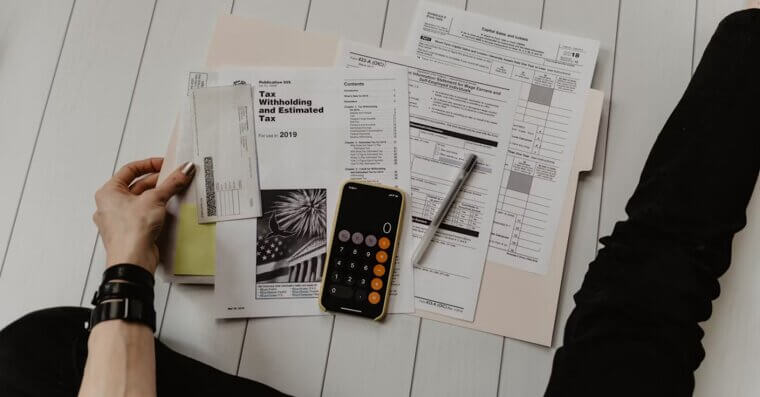Money Matters
Budgeting sounds simple on paper. Spend less than you earn, save the difference, repeat. But in real life it’s never that straightforward. It’s a part of adult-ing it can be difficult to grasp – but luckily, help is at hand. Here are several budgeting mistakes people often make.
Not Tracking Spending
A lot of people think they know where their money goes, but without tracking, it’s usually just advanced guessing. Tracking doesn’t have to be complicated; even a simple app or notebook works. You just need to know exactly where everything is going, down to the dollar.
Living Paycheck to Paycheck
When every dollar of income is already spoken for, there’s no room for error. One unexpected bill can, well, it can send you down a horrible spiral. One thing you can do to help yourself is always look for a better job.
Not Comparing Prices
Convenience often wins, but not shopping around can cost you big over time. When it comes to things like insurance or internet, you should always be researching to get the best deal. And sometimes, if you tell the company you’re leaving them, they’ll reduce their prices for you.
Ignoring Small Expenses
It’s easy to overlook the little things, but they’re often what sneakily wreck your budget. That $6 sandwich here and a streaming upgrade there may not seem like much, but over a month, it’s real money you’re losing – money you might need in an emergency.
Relying on Credit Cards for Basics
If you’re using credit cards for groceries, gas, or other essentials because your budget is too tight, it’s a sign something’s off. Carrying a balance only makes it worse with interest charges. It’s a vicious cycle that eats away at your income.
Avoiding Retirement Contributions
Retirement feels far away when you’re young, so many people skip investing for it. But the earlier you start, the more time your money has to grow. Even small contributions add up thanks to compounding. Thinking “I’ll start later” is one of the costliest money mistakes people make, because later often comes too late.
Forgetting Irregular Expenses
Family birthdays and holiday shopping - these aren’t surprises, yet people forget to budget for them. When they pop up, you end up scrambling or using a credit card. A better way is to set aside a little each month for these costs. (Or you could skip buying a present for that one relative you hate.)
Setting Unrealistic Budgets
Trying to live on an impossibly strict budget might sound like a good idea in theory, but it usually backfires. If you cut too much, psychology tells us you’ll eventually feel deprived and end up splurging to make yourself feel better. A realistic budget balances responsibility with enjoyment.
Overspending on Housing
It’s tempting to stretch for that dream apartment, but housing that eats up too much of your income squeezes out everything else. The rule of thumb is around 30% of take-home pay should go on rent or mortgage, but many people blow past that. When housing costs are too high, it’s hard to save.
Mixing Wants With Needs
It’s easy to justify wants as needs - like convincing yourself a new phone is a “necessity” when your old one still works fine. The line can get blurry, and that’s where budgets get messy. Being honest about what’s truly essential versus what’s just nice to have is an important part of being an adult.
Relying Too Much on Cash Windfalls
Tax refunds, bonuses, and gifts often feel like “extra” cash to blow. But relying on windfalls instead of steady budgeting is risky. That money disappears quickly with impulse purchases, and a smarter move is to use at least part of it for debt or savings.
Forgetting About Debt Repayments
A budget that doesn’t account for debt payments is incomplete. Credit cards, student loans, or car payments won’t just disappear. You don’t have to obsess about debt, but keep it on your mind and in your plans.
Ignoring Credit Card Interest
A lot of people focus only on the balance and forget that interest keeps piling on every month. That $1,000 purchase can cost hundreds more if it lingers on your card. Understanding how interest works is key to breaking free from debt traps – luckily, lots of people online will be able to help you with this.
Relying on Memory Instead of a System
Trying to keep your budget in your head is like trying to remember every detail of your grocery list - you’ll miss something no matter how smart you are. Make sure everything is written down on an app, a spreadsheet, or even just a paper notepad.
Skipping Savings Altogether
When money feels tight, saving can seem like the first thing to cut. But skipping savings is one of the biggest mistakes. Even if it’s just $20 a month, building the habit matters more than the amount. Automating it helps - you won’t even notice it’s gone.
Guessing Income Instead of Using Actual Numbers
Some people budget based on what they think they make, or their best month ever, instead of their actual take-home pay. That’s a recipe for disaster. A budget only works when it’s based on real, consistent numbers. Always start with your average net income so you know exactly how much you can work with.
Forgetting to Check Credit Reports
Out of sight, out of mind - until it bites you. Many people ignore their credit reports, but errors or fraud can seriously hurt your score. That translates into higher loan rates or even lost opportunities. Reviewing your credit annually is free and helps you stay in control.
Forgetting to Budget for Inflation
Prices don’t stay the same - groceries, gas, and utilities creep up over time. It sucks, but it’s part of life. If your budget hasn’t been updated in months or years, you’re probably underestimating expenses. That can leave you short every month without understanding why.
Overusing Buy Now, Pay Later Services
Splitting payments into easy installments feels harmless at first, but it’s still debt. Many people stack multiple buy-now-pay-later plans and suddenly half their paycheck is spoken for. It also makes tracking spending harder since payments are spread out.
Using Round Numbers
Budgeting with rounded estimates like “I’ll spend $200 on groceries” often leads to overspending. Real life isn’t that neat. You’ll spend $217.53, and suddenly you’re off track. It’s better to work with real numbers based on past spending.
Ignoring Subscriptions and Memberships
Streaming services, gym memberships, and apps you forgot you signed up for quietly eat away at your budget. Because they’re automatic, you may not even notice what’s happening. Review your subscriptions every few months and see what you can live without. Have you even watched anything on Netflix for months?
Not Reviewing the Budget Regularly
A budget isn’t something you set once and forget. Life changes – you could get a new job, for example - so your budget needs to shift too. Not checking in regularly means you’re working with outdated numbers. A quick monthly review keeps everything accurate.
Chasing Lifestyle Upgrades Too Soon
Got a raise? Congrats! But many people instantly upgrade their lifestyle - new car, nicer apartment, fancier gadgets - without improving savings first. That’s lifestyle creep, and it eats every bit of extra income. A better move is to lock in old spending habits for a while and use the raise to build financial security before splurging.
Not Including Savings Goals
It’s one thing to save for emergencies, but people often forget to budget for future goals - like a vacation. Without earmarking money for those things, they end up on credit cards. Adding goal-based savings to your budget helps you plan ahead and eventually you’ll be lounging on the beach guilt-free.
Being Too Vague With Categories
Lumping everything into broad categories like “miscellaneous” or “household” doesn’t help you see where your money really goes. The vaguer your categories, the easier it is to overspend without realizing it. Breaking things down into specific groups - groceries, dining out, cleaning supplies, entertainment - makes it easier to spot patterns.
Letting Emotions Drive Spending
Retail therapy is real. Bad day? Buy something to make you feel better. Good day? Celebrate with a purchase. The problem is, emotions don’t care about your budget. Letting you feelings dictate spending often leads to another, even worse feeling later – regret.
Always Buying Brand New
There’s nothing wrong with wanting shiny new things, but always buying brand-new items can destroy a budget if you take it too far. Thrift shops or even eBay can save you serious money or things like furniture and clothes.
Using Savings to Cover Regular Expenses
Dipping into savings every month to pay regular bills means your budget isn’t working. Savings should be for emergencies or future goals, not everyday costs like food. If you’re constantly pulling money out, it’s a red flag that spending exceeds income.
Not Negotiating Bills
Cable, internet, insurance - these bills feel set in stone, but they’re actually often negotiable. Many people just accept the price, even as rates creep up, when a simple phone call can lead to discounts. Skipping this step is a money mistake because companies expect you to ask.
Forgetting to Budget for Self-Care
Budgets often cover rent, food, and bills, but people forget self-care costs - like haircuts, gym memberships, or hobbies. These are important to keep you happy and you don’t have to spend too much on them.
Forgetting About Taxes
It’s easy to budget based on gross pay or assume your refund will fix everything. But taxes aren’t optional, and not setting aside enough can wreck your finances come April. Freelancers and gig workers especially fall into this trap.
Ignoring Interest on Savings Accounts
Lots of people park money in traditional savings accounts earning next to nothing. While it feels safe, it’s a missed opportunity. High-yield savings accounts or CDs can grow your money faster with zero effort. Talk to your bank about it!
Comparing Yourself to Others
One subtle budgeting mistake is letting other people’s spending habits influence yours. Maybe friends are upgrading cars or taking fancy trips, and you feel pressured to keep up. That FOMO trap can blow your budget fast.
Ignoring Automation
A lot of people rely on memory to pay bills or move money to savings. The problem is that life gets busy, and something always slips through the cracks. Late fees add up fast, and you don’t want that. So use automated bills and transfers to take the stress out of budgeting – they’re easy to set up.
Not Celebrating Small Wins
People often skip celebrating small wins, like paying off a credit card or hitting a savings milestone. But budgeting can feel like a grind if you never recognize your progress, so be sure to go out for a nice meal and enjoy some positive reinforcement.




































